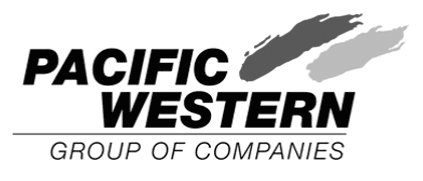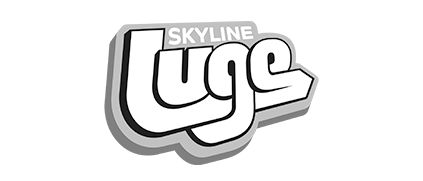Signs It’s Time to Invest in Market Research
Many businesses don’t realize some of their biggest growth challenges can be solved with market research. Here are some signs that it’s time to explore the benefits of market research:
Are you losing customers?
If you’ve lost customers recently, you might need to adjust your pricing, services, or product attributes. On the other hand, these losses could also be caused by false rumours, inattentive staff, or inflexible corporate policies. When this happens, customers are sometimes too polite or uncomfortable to tell you directly what the reasons are. Whatever the issue is, market research, such as in-depth interviews using a third-party, neutral researcher, can often uncover the root problems.
Is revenue down or stagnant?
Having flat sales doesn’t mean you’re making an error, but it might mean you’re playing it a bit too safe. To rectify, you need to seek out opportunities – what else could customers need from you? Are there ways to bundle new services with existing offerings? Are there other kinds of customers you could seek out? Conducting market research directly with both existing and prospective customers will give you the data, and hence the confidence, to find bolder new directions that drive growth.
Are you struggling to get your team on the same trajectory?
Teams often argue about the which direction a company should take, each making assumptions about what is best for the future. Rather than guess, why not use market research to paint a clear picture about customers’ opinions, needs, and wants. With clear research and recommendations based on data, all team members can appreciate the rationale of the decisions at hand and do what is best for the organization.
Are you facing challenges with retaining customers long term?
If customers are not returning for more purchases, it might not be due to your competitors. It is often that you under-sold them (e.g. a one-off purchase), and they weren’t aware all of the other things you offered. Market research, usually using post-purchase interviews with those customers, will reveal whether they would consider other, related offerings, or a different kind of ongoing arrangement. Then, if you need it, we can assist you in redesigning your offerings and how you present them.
We Can Help, Contact Us Today
What Kind of Market Research Do You Need?
These are some of the most common questions you may need answered:
Q. What is my best selling angle, or competitive advantage?
To determine this, you will usually need two kinds of research:
- In-Depth interviews with customers and/or prospects, to determine why they buy, i.e. what were their buying “hot buttons” – for example, a low price, certain attributes of the product/service, location, or convenience?
- Competitor intelligence research, to determine what is unique about your offerings vs. competitive offerings. We analyze over 40 different parameters, from location and marketing methods, to specific product (or service) attributes.
Q. Is there demand for my new product, service or idea? Or, will it likely succeed?
To determine this, you will need a feasibility study which can involve several kinds of research such as:
- In-Depth Interviews (and/or Focus Groups) with Prospects or Customers
- Competitor Research (is another company already offering the idea? That could be a green light that it will succeed for you, or it could mean you need deeper pockets to compete than you expected)
- Secondary Research re: market trends and demand – to see if there is demand in the areas you are considering, or if there needs to be some adjustments made to your concept.
- You may also wish to test your idea with online audiences to see if it is attractive.
A feasibility study also involves creating a strong pitch/description for your new concept on which to base the research. Tenato handles all these aspects.
Q. Is our Customer Satisfaction good enough, and how could it be better?
The first part, are your customers satisfied, can be measured with a survey and done periodically, to look for changes over time. We call this “quantitative research” – because you usually ask questions such “on a scale of x – y, how happy are you with the service you received?” By asking them for a number rating, you can get measurable (quantitative) data that easily compared from survey to survey.
The second part, how could they be made happier, usually involves some deeper digging, or a type of conversation, which is a “qualitative research” question. With an open discussion, you can ask people what they wish you did better, and what other things you could be doing but might have missed.
The best answer is to do both types; a quantitative survey to measure, and some qualitative interviews with a smaller number of customers to find the deeper reasons for their satisfaction.
Q. How should we diversify or expand our business to drive growth?
Diversification or expansion research involves a few different elements:
- Competitor research, to see if there are gaps in your offerings that competitors are now filling.
- Customer research (such as in-depth interviews or focus groups), to see if there are new offerings your customers need, and why they might want these from you.
- Secondary research, e.g. online research, to uncover market trends, size of market, demand, geographic variations, and more.
If you’ve got an entirely new idea or product, you may also want to broaden this to a feasibility study.
What Makes Tenato’s Research Approach Different?
With clients in countless industries over three decades, we know that you’re not just looking for market research out of curiosity – you need it make a decision of some kind – be it a price, the type of service, the market niche, or any number of things. The research must be crystal clear, and with enough solid data that you can be confident in your decision.

Not piles of meaningless data. Just the right data.
Because strategy is a core part of what we do, we have a very clear picture of just how much market research– and what kinds– are definitely required to support business decisions. So, instead of giving you a 200 page report without telling you what it means, we zero in on getting you the right answers, and then provide the interpretation to ensure you understand how to act on it.

We dig deep into the customer’s mind.
If you really want to know what your customers think of you and why (or what potential customers might think of a new concept) it takes a different approach from what a conventional scripted researcher might use…as we know those people often come across as bland telemarketers. Instead, our trained, seasoned researchers use techniques to put interviewees fully at ease, helping them to engage and fully share their real thoughts and situations. Over years of doing this, our clients often say, “I can’t believe my customers told you all that! We had no idea!” This is not deception – it’s experience and sincerity – listening well, and letting people share what they have to say.

We take advantage of the latest tools.
While many traditional research firms rely only on surveys and focus groups, we also make use of newer tools – such as social media monitoring, Artificial Intelligence (very selectively), keyword trends, and online metrics. These tools don’t just ask people what they will do (which is not always reality), they reveal what they are already doing by combing through piles of “big data” online.
If you’re searching for market research companies, you’re likely seeking expert help in uncovering insights to help you make some key business decisions.
About Tenato’s Market Research Services
Tenato Strategy is a Canadian marketing research and strategy firm with over 28 years in business, and experience across a wide range of business-to-business (B2B) and business-to-consumer (B2C) research projects. We offer competitor research, feasibility research / feasibility study projects, focus groups , in-depth interview research, customer / satisfaction surveys and much more.
We have dealt with many business owners, chief marketing officers (CMO’s) and business development personnel, from small one-person companies to non-profits, universities, and Fortune 100 international firms, so we can easily scope out and handle projects of almost any size.
This page will help you decide on the kind of research you likely need, or if you prefer, you can read about the specific capabilities of our offices in Calgary, Vancouver and Toronto, or Canada-wide.




















